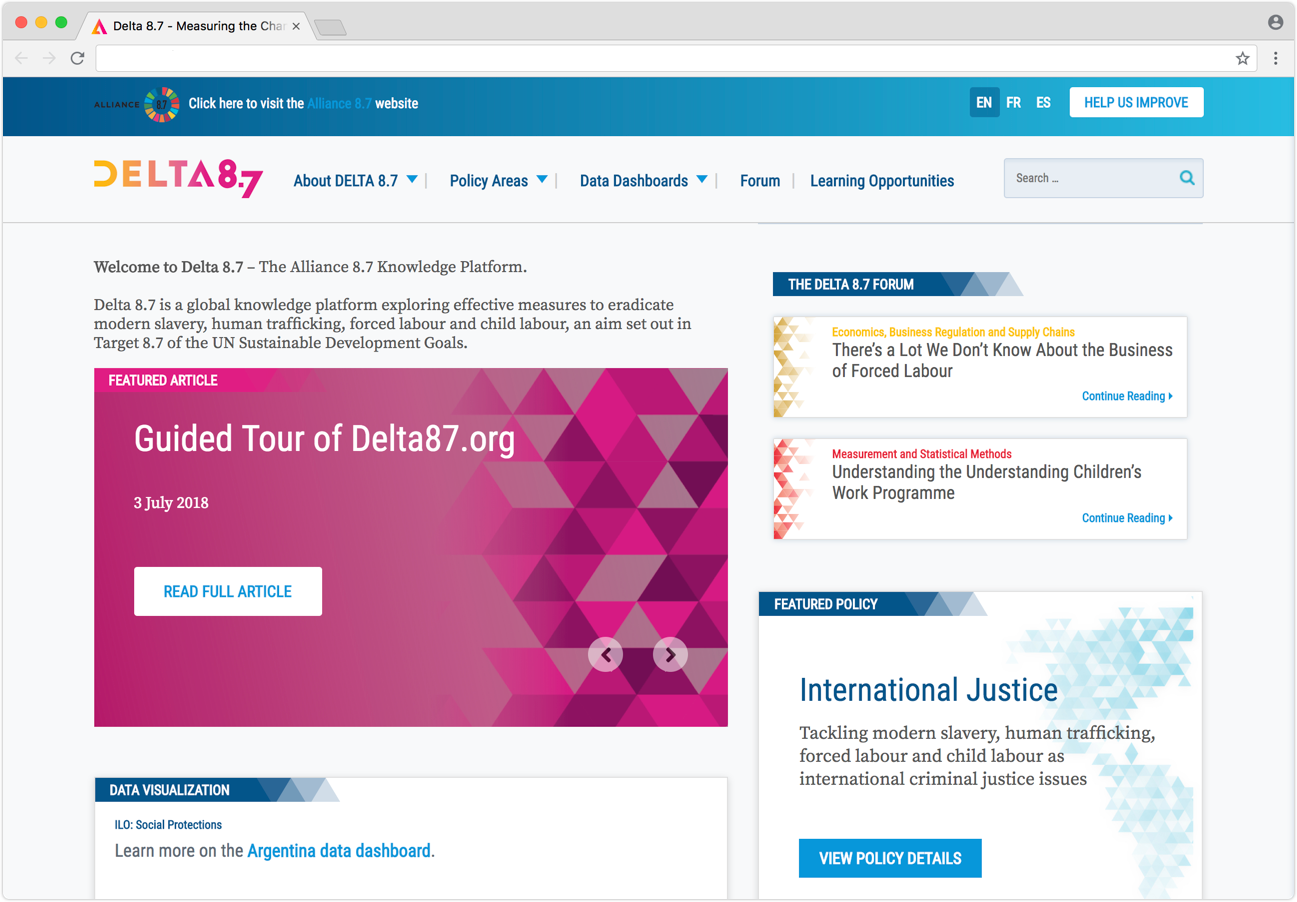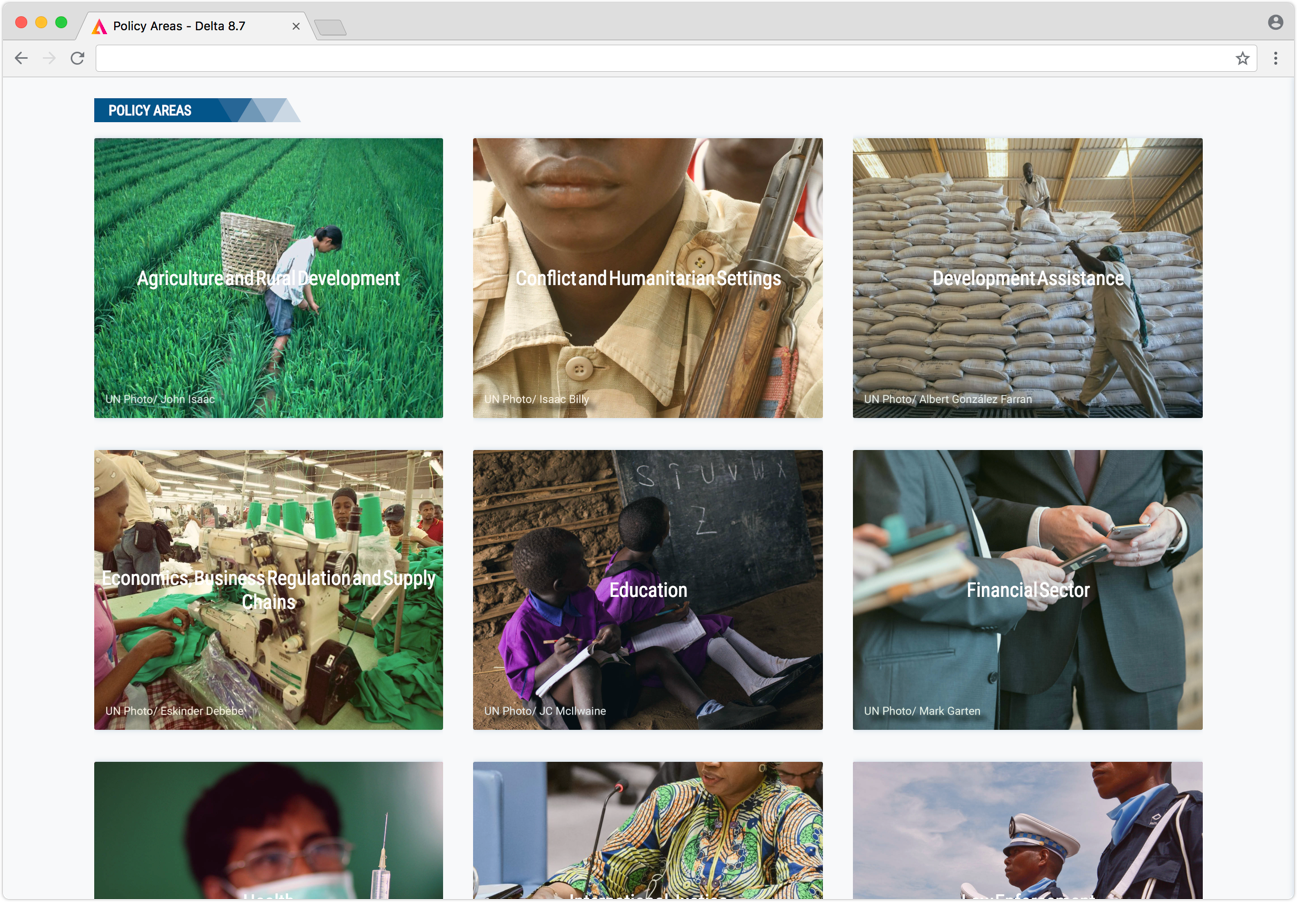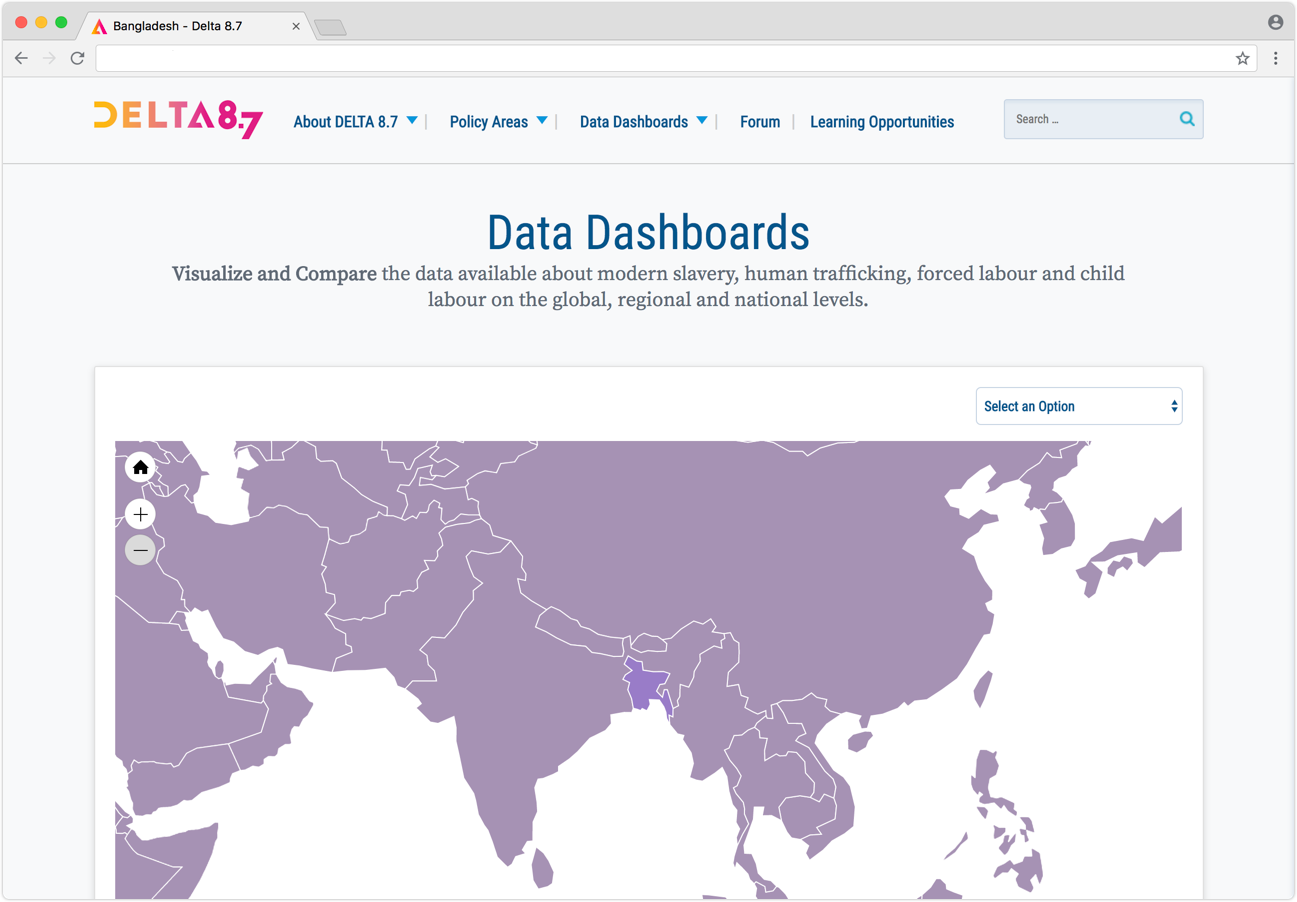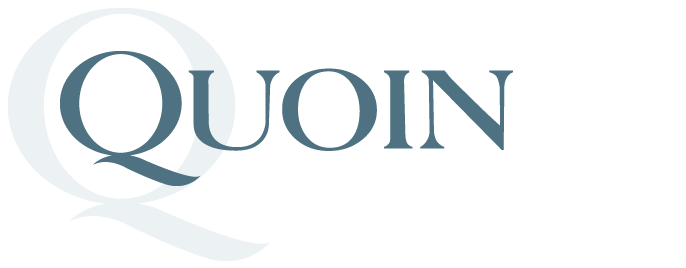Quoin built a multi-language knowledge and data visualization platform for UN University to facilitate a global collaborative effort to end forced labor, modern slavery, human trafficking, and child labor. Our team used open source technologies - WordPress CMS and CKAN – to deliver a robust and extensible system to support an international community of policy experts, researchers, and government representatives.

The United Nations University (UNU) is a UN agency that contributes, through education and research, to address pressing global issues related to human survival, development, and welfare. In line with their mission to advance scientific and academic collaboration, UNU sponsored the development of a Global Knowledge & Data Visualization Platform to target forced labor, modern slavery, human trafficking, and child labor. The web-based platform, also known as the Delta8.7 Knowledge Hub, was designed to crystallize UNU’s focus on data-driven policy development. It is also a critical element towards achieving Target 8.7 of the UN Sustainable Development Goals by 2030.
Quoin was responsible for the design and implementation of the Knowledge Hub Platform based on open-source software. We used WordPress CMS and CKAN, both proven open-source technologies for digital asset management and delivery, to enable UNU editors to rapidly create and share articles and data. The platform emphasizes rapid publishing of quantitative information in a range of formats – such as raw datasets, graphics, maps, and interactive data visualizations using the D3 JavaScript library. Quoin provided a full development team including project manager, technical lead, requirements analyst, visual designer, and software engineers; and continued to support the enhancement of the system until its launch in 2018.
Our development effort also included the visual design and the administrative tools for UNU staff, as well as integration with a language translation service. The engaging site design and organizational branding highlight the critical work done by UN University and the community of policy, government, and advocacy organizations. The administrative tools support user role-based access control, content administration, and taxonomy management features.
